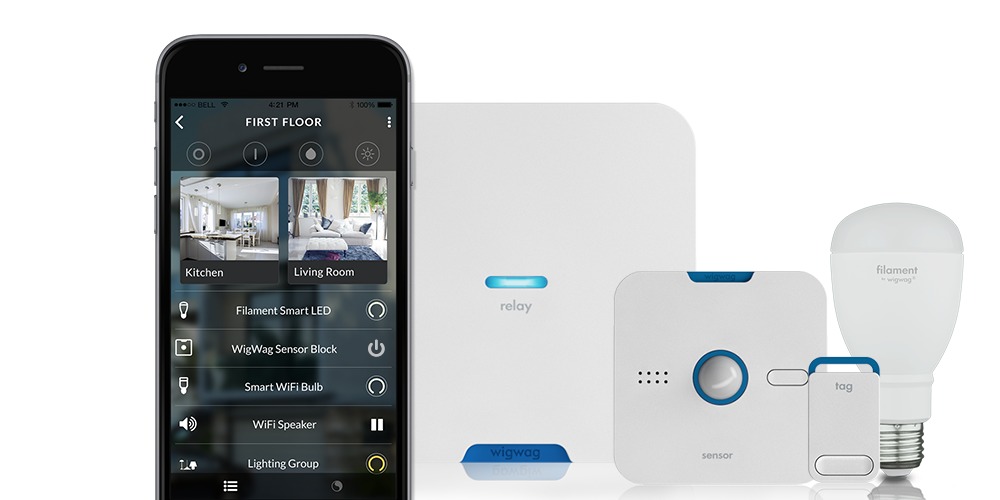Instant Contiki is a single-file download that contains everything needed to work with Contiki: compilers, toolsets, editors. For information on how to get started, see this link.
Monday, November 18, 2013
Instant Contiki 2.7 Available
Following the Contiki 2.7 release, version 2.7 of the Instant Contiki development environment is now available:
Friday, November 15, 2013
Contiki 2.7 Released!
After a long wait, Contiki 2.7 is finally released!
Contiki 2.7 is a massive improvement over previous versions. A lot of effort has gone into making the system really stable, particularly the wireless IPv6 mesh networking. We now have a regression testing framework that kicks in on every commit and runs the system on 9 different emulated hardware platforms with 4 different CPUs and on more than 1000 emulated wireless network nodes. We have found several hard-to-find bugs deep in the network stack that show up as we push the envelope on system performance. Several parts of the IPv6 stack has also been rewritten to make the code easier to follow and for everything to work better.
The Contiki 2.7 release also adds new platforms, such as the TI CC2538 802.15.4 System-on-a-Chip and the PIC32, as well as updates to many of the other platforms.
The full source code can be downloaded from
New features and mechanisms:
Critical bugfixes in:
IPv6 stack:
Platforms:
Cooja:
Contiki 2.7 is a massive improvement over previous versions. A lot of effort has gone into making the system really stable, particularly the wireless IPv6 mesh networking. We now have a regression testing framework that kicks in on every commit and runs the system on 9 different emulated hardware platforms with 4 different CPUs and on more than 1000 emulated wireless network nodes. We have found several hard-to-find bugs deep in the network stack that show up as we push the envelope on system performance. Several parts of the IPv6 stack has also been rewritten to make the code easier to follow and for everything to work better.
The Contiki 2.7 release also adds new platforms, such as the TI CC2538 802.15.4 System-on-a-Chip and the PIC32, as well as updates to many of the other platforms.
The full source code can be downloaded from
An updated version of Instant Contiki will follow shortly.
Changelog
New features and mechanisms:
- Regression test framework
- Travis integration
- New code style script
- mDNS
- Trickle timer library
- Compiler output less verbose
Critical bugfixes in:
- CSMA
- 802.15.4 framer
- Nullrdc
- ContikiMAC
- 6lowpan fragmentation handling
- IPv6
- RPL routing
IPv6 stack:
- IPv6 neighbor table refactorization
- IPv6 routing table refactorization
- RPL rewrite
- RPL auto-repair of failed routes
- IPv6 stack monitor if neighbor fails
- Callbacks on routing table changes
- 6lowpan: allow the maximum radio frame size to be configured
Platforms:
- New TI CC2538 802.15.4 System-on-a-Chip platform
- New PIC32 / SeedEye platform
- STM32w updated
- CC2430 updated
- MC1322x updated
Cooja:
- Support for link-layer ACKs
- Improved stack monitoring and stack overflow triggering
- Improved radiologger: duplicate packets now collapsed
- Improved Timeline handling
- Save radio bitrate in .csc file
- Support for CC1101, CC1120, and ENC28J60 emulation
- MSPsim support for MSP430x instruction set, verified against hardware
Saturday, August 17, 2013
Instant Contiki 2.6.1 Available
A new version of Instant Contiki is has just been posted and is available for download below. Heads up: the Instant Contiki download is about 2 Gb large.
https://sourceforge.net/projects/contiki/files/Instant%20Contiki/Instant%20Contiki%202.6.1/
Instant Contiki is an Ubuntu-based virtual machine that takes away the complexity of starting to develop software for Contiki: Instant Contiki contains all the compilers and tools needed for Contiki development in a single file download. No need to install any complex software or tool chains beyond VMWare Player.
This version of Instant Contiki contains the following:
How do you install and use Instant Contiki? Read all about it here!
https://sourceforge.net/projects/contiki/files/Instant%20Contiki/Instant%20Contiki%202.6.1/
Instant Contiki is an Ubuntu-based virtual machine that takes away the complexity of starting to develop software for Contiki: Instant Contiki contains all the compilers and tools needed for Contiki development in a single file download. No need to install any complex software or tool chains beyond VMWare Player.
This version of Instant Contiki contains the following:
- msp430-gcc 4.7.0 20120322
- avr-gcc (GCC) 4.5.3
- arm-none-eabi-gcc (Sourcery G++ Lite 2008q3-66) 4.3.2
- SDCC : mcs51 3.3.1 #8804 (Aug 6 2013)
- cc65 V2.13.9
- java version 1.7.0_25
How do you install and use Instant Contiki? Read all about it here!
Monday, July 1, 2013
More Contiki-based products posted


Two new Contiki-based products posted today:
- The WigWag home automation system
- The Vibrain smart city solution
Wednesday, June 19, 2013
Contiki's Internet of Things: From Badgers to Light Bulbs
What does swans, badgers, data centers, city streets, and light bulbs have in common? Contiki!
The Internet of Things will be a revolution. It will be everywhere. These Contiki-based systems are some of the early signs of what to expect:
- The Oxford badger tracking system – also used to track swans, hares, and eagles
- The tado° smart thermostat
- The Rad-DX radioactive radiation monitor
- The Zolertia city street noise monitoring system
- ... and many more on the Contiki website!
Thursday, June 13, 2013
Self-powered Contiki Power Sensor Wins IPSO 2013 Challenge
Need to know how much power that flows through a specific power cord, and see the information directly on your smartphone? That's exactly what the Contiki-based winner of the IPSO 2013 challenge does. Just clip on the sensor on cord and see the data from anywhere in the world – the sensor sends the measurements wirelessly and securely across the Internet. Best of all: no batteries need to be replaced, ever, as the sensor is completely self-powered.
The wireless power sensor, developed by Redwire Consulting, Boston, MA, won the IPSO 2013 Challenge last week. Aside the fame and recognition, winning the competition also included a $10000 USD check.
The sensor that is clipped-on to an power cord measures the current flowing through the wire and sends the data wirelessly to a cloud server, hosted at lowpan.com. By using Contiki and its IPv6 stack, the sensor can send its readings directly to the cloud, without having any protocol translator boxes involved.
IPSO 2013 Challenge chairman Nick Ashworth said "The innovation, simplicity and end-to-end utilization of IP technology made this entry stand out to the judges."
The Redwire system was not the only Contiki-based system to compete in the IPSO 2013 challenge. The full list of entries can be found here.
More coverage:
The wireless power sensor, developed by Redwire Consulting, Boston, MA, won the IPSO 2013 Challenge last week. Aside the fame and recognition, winning the competition also included a $10000 USD check.
The sensor that is clipped-on to an power cord measures the current flowing through the wire and sends the data wirelessly to a cloud server, hosted at lowpan.com. By using Contiki and its IPv6 stack, the sensor can send its readings directly to the cloud, without having any protocol translator boxes involved.
IPSO 2013 Challenge chairman Nick Ashworth said "The innovation, simplicity and end-to-end utilization of IP technology made this entry stand out to the judges."
The Redwire system was not the only Contiki-based system to compete in the IPSO 2013 challenge. The full list of entries can be found here.
More coverage:
Subscribe to:
Posts (Atom)


